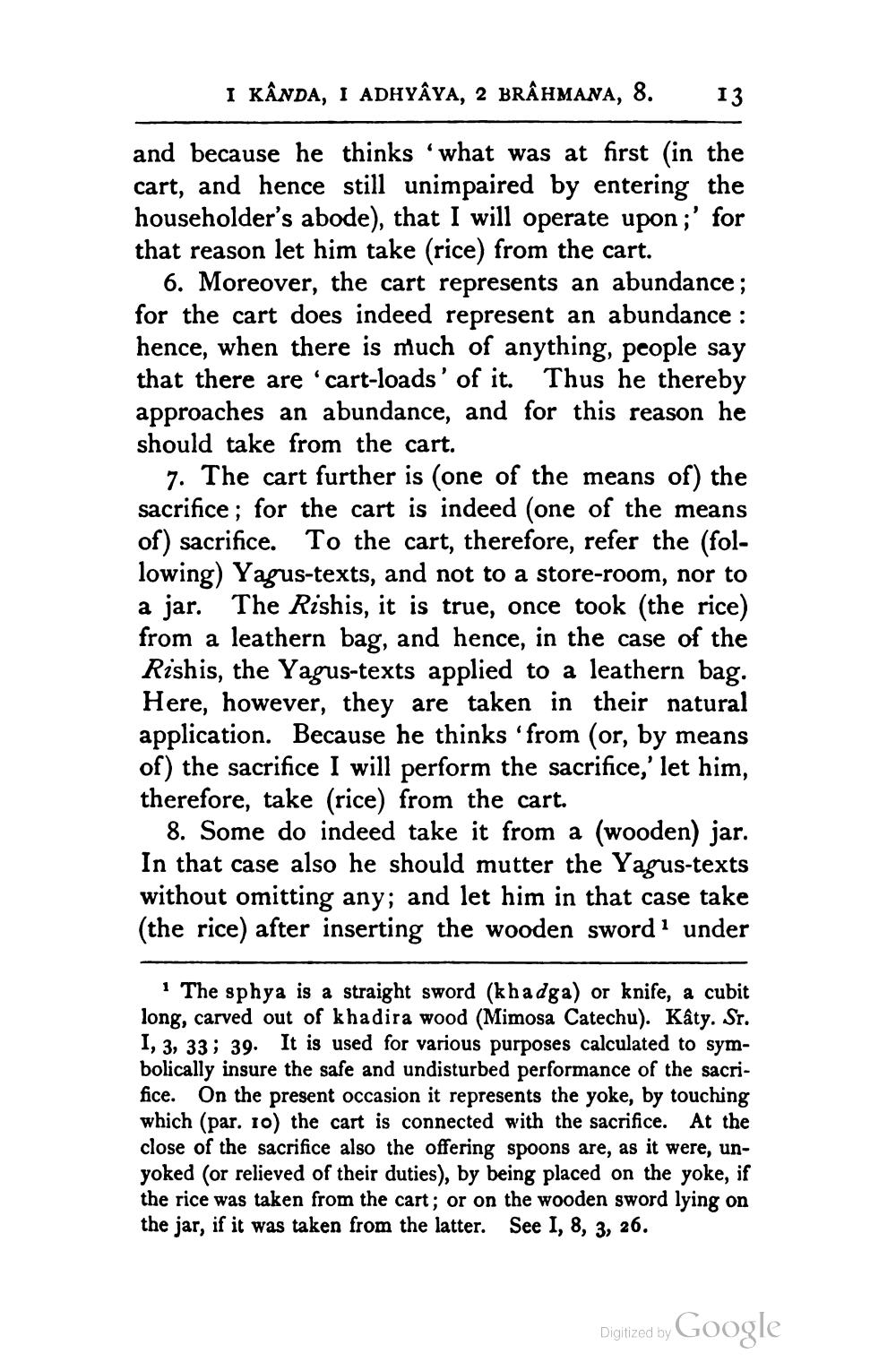________________
I KÂNDA, I ADHYAYA, 2 BRÂHMANA, 8.
13
and because he thinks 'what was at first in the cart, and hence still unimpaired by entering the householder's abode), that I will operate upon ;' for that reason let him take (rice) from the cart.
6. Moreover, the cart represents an abundance; for the cart does indeed represent an abundance : hence, when there is much of anything, people say that there are 'cart-loads' of it. Thus he thereby approaches an abundance, and for this reason he should take from the cart.
7. The cart further is (one of the means of) the sacrifice; for the cart is indeed (one of the means of) sacrifice. To the cart, therefore, refer the (following) Yagus-texts, and not to a store-room, nor to a jar. The Rishis, it is true, once took (the rice) from a leathern bag, and hence, in the case of the Rishis, the Yagus-texts applied to a leathern bag. Here, however, they are taken in their natural application. Because he thinks 'from (or, by means of) the sacrifice I will perform the sacrifice,' let him, therefore, take (rice) from the cart.
8. Some do indeed take it from a (wooden) jar. In that case also he should mutter the Yagus-texts without omitting any; and let him in that case take (the rice) after inserting the wooden sword? under
1 The sphya is a straight sword (khadga) or knife, a cubit long, carved out of khadira wood (Mimosa Catechu). Kâty. Sr. I, 3, 33; 39. It is used for various purposes calculated to symbolically insure the safe and undisturbed performance of the sacrifice. On the present occasion it represents the yoke, by touching which (par. 10) the cart is connected with the sacrifice. At the close of the sacrifice also the offering spoons are, as it were, unyoked (or relieved of their duties), by being placed on the yoke, if the rice was taken from the cart; or on the wooden sword lying on the jar, if it was taken from the latter. See 1, 8, 3, 26.
Digitized by Google




